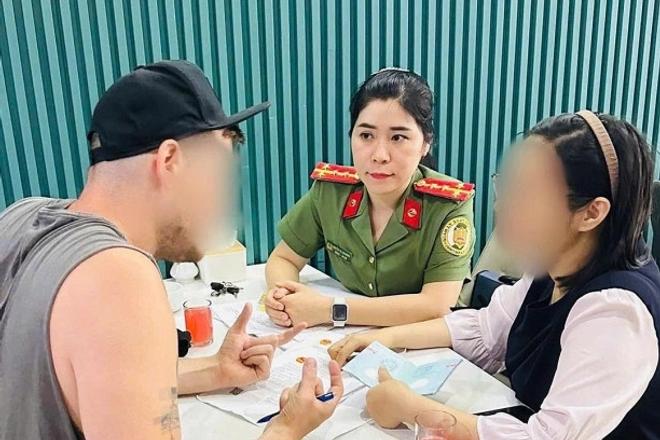A Slovak citizen has been deported from the United States by the Immigration and Customs Enforcement (ICE) agency, which has faced criticism over its deportation tactics, according to an announcement posted on its social media channels.
The man, identified as Štefan Danák, had reportedly been issued a deportation order in 2021 but failed to comply. He was apprehended by ICE agents in New York City on 12 June.
ICE has long been the subject of criticism for its aggressive enforcement methods, often involving heavily armed agents equipped with military-style weapons and vehicles. In recent weeks, its operations have prompted riots in Los Angeles and protests in other cities.
The agency has been accused of disproportionately targeting people of Latin American origin. However, some widely circulated posts on social media argued that Danák’s arrest shows ICE is not racially biased.
According to a statement from Slovakia’s Foreign Ministry, officials have not received any requests for consular assistance. The ministry said it routinely advises Slovak citizens detained by ICE to seek consular support.
Another Slovak citizen deported from Vietnam
In a separate case, a Slovak national has been deported from Vietnam after allegedly altering the expiration date on his electronic visa, according to a report published by VNExpress International.
The 39-year-old man was reportedly discovered during a routine residency inspection at a hotel in Hanoi's Hoan Kiem District on 25 April. Vietnamese immigration authorities said he had entered the country on a valid e-visa set to expire on March 31, 2025, but had allegedly modified the date in an attempt to stay in the country illegally.
Authorities fined him 8 million Vietnamese dong (about €265) and ordered his immediate deportation.
When asked for comment on both cases, Slovakia’s Foreign Ministry stated that neither the ministry, the Slovak Embassy in Washington, D.C., nor the Slovak Embassy in Hanoi had been officially notified of the detention of Slovak citizens in the United States or Vietnam. The ministry added that no requests for consular assistance had been submitted in either case.
The ministry concluded its statement with a reminder to Slovak citizens of “the importance of complying with the immigration laws and regulations of the countries to which they travel,” warning that violations may result in detention, fines, criminal prosecution, deportation, and a permanent ban on re-entry.
Shifting visa landscape in Vietnam
To provide context on Vietnam’s immigration system, The Slovak Spectator spoke with Al Pillar, a former English teacher who lived in Vietnam for several years and is now based in Bratislava. He recalled how informal – and at times chaotic – the visa process used to be.
“When I was there, border runs were the go-to,” Pillar said, referring to the practice of briefly leaving the country, often to Cambodia or Laos, to renew a short-term visa. “You’d have to get an agent to sort you a visa on arrival. It was a three-month recurring kind of thing.”
According to Pillar, Vietnam began tightening its visa and work permit regulations several years ago, requiring degrees and other documentation for legal employment. Still, he said, loopholes persist.
“The woman who arranged my visa on arrival owned a café,” he said. “It wasn’t very organised. There were a lot of rogue elements.”
Vietnam currently issues 90-day e-visas to most foreign nationals, including Slovak citizens. Authorities have warned that tampering with immigration documents is a serious offence that may result in fines, expulsion, or legal consequences. Hotels and guesthouses have also been instructed to report suspicious documents to the police.




